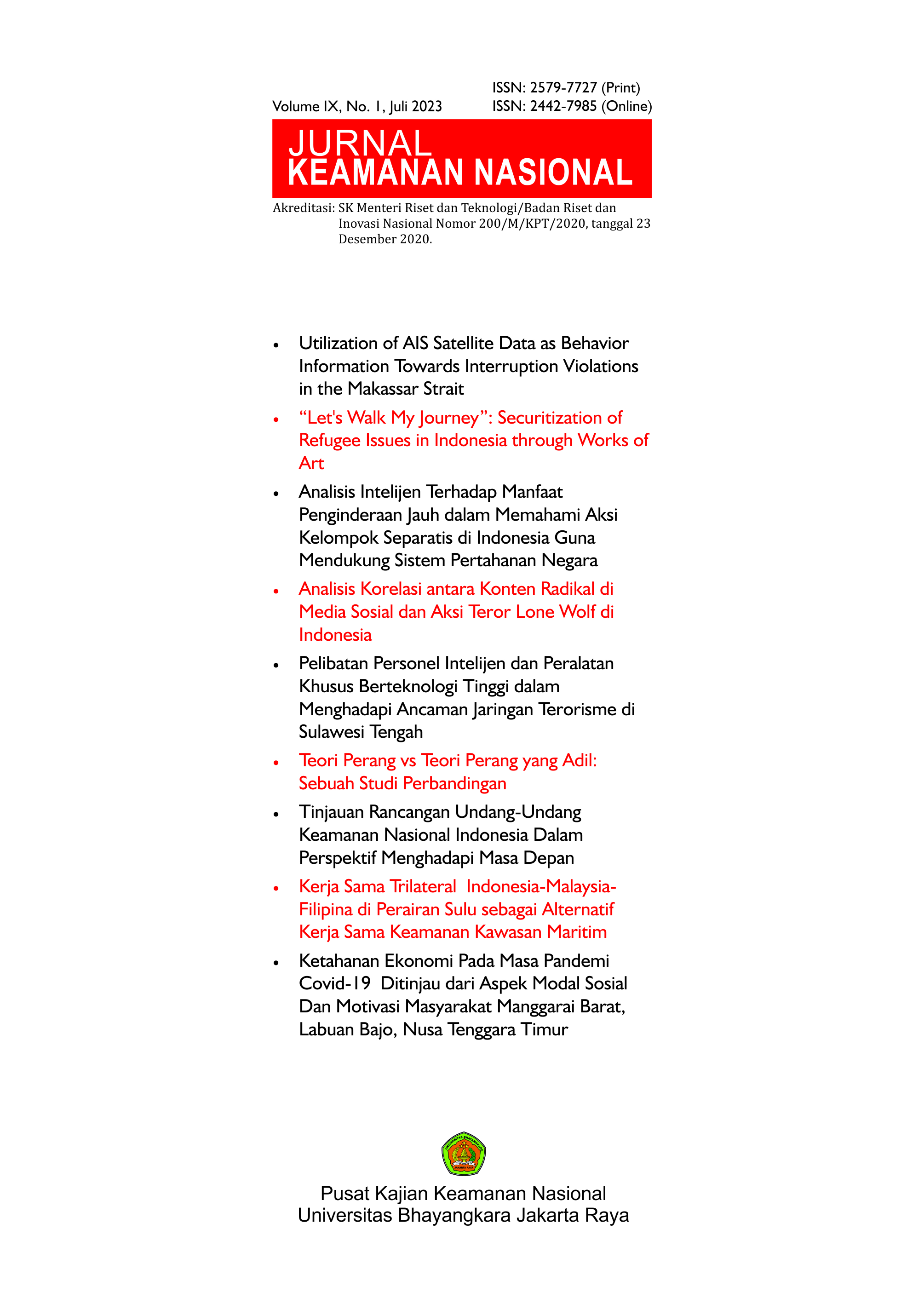“Let’s Walk My Journey”: Securitization of Refugee Issues in Indonesia through Works of Art
Keywords:
securitization, refugees, human rights, art, IndonesiaAbstract
This study aims to examine the securitization carried out by RDI Urban Refugee Research Group (RDI UREF) through the art exhibition Let’s Walk My Journey in 2022. The group used works of art as a medium to securitize human security issues faced by refugees who are in transit in Indonesia. The issues ranged from uncertain resettlement in a third country to lacking human rights access to legal employment and education in Indonesia. This study uses a qualitative method, with the securitization theory by Barry Buzan and Ole Wæver in place. The author found that the securitization carried out by RDI UREF aims to draw the attention of the Indonesian public to make them aware of refugee issues. The group expected the bigger public awareness of the issues to become a stronger force in urging the government to guarantee refugee rights. Let’s Walk My Journey enables UREF to become a securitization actor, with refugees in transit as a referent object and the Indonesian people and government as a targeted audience. In the exhibition, the group uses artworks as speech acts to make the public and government realize that refugee issues are an existential threat they must address and solve together for the sake of humanity.
Downloads

Downloads
Published
Issue
Section
License
Please read and understand the copyright terms for submissions to this journal.
Copyright Notice
The Jurnal Keamanan Nasional is under the Creative Commons Attribution 4.0 International (CC-BY 4.0) License, according to which:
1) Authors retain copyright and grant the journal the right to first publication, with the work simultaneously licensed under the Creative Commons Attribution (CC-BY 4.0) that allows the sharing of articles published with the acknowledgement of authorship and the initial publication in this journal.
2) The authors are authorized to make additional contracts separately for distribution of the version of the work published in this journal (for example, publication in an institutional repository or as a chapter of the book), as long as there is recognition of authorship and initial publication in this journal.
3) Authors are authorized and encouraged to publish and distribute their work online (for example, in institutional repositories or on their personal pages) at any time before or during the editorial process, as it increases the impact and reference of the published work.












